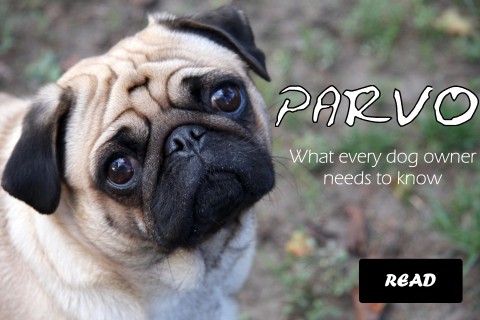Outbreaks of parvovirus among dogs in Massachusetts, Indiana, Illinois, and New Jersey have animal shelters and owners scrambling to help sick dogs and prevent further spread of the virus.
Colin Parrish, Professor of Virology at the Baker Institute for Animal Health, Cornell University College of Veterinary Medicine, who was involved in the development of the original parvovirus vaccine and continues to study the virus, says outbreaks of parvovirus occur periodically, and gives some advice to dog owners regarding what signs to look for and what to do if your animal becomes ill.
Parrish says:
“Puppies are most susceptible to disease and in general younger puppies develop the worst disease, although even susceptible older dogs can have severe disease in some cases.
“Parvovirus outbreaks are not seasonal, like influenza in humans, but outbreaks tend to be related to the numbers and density of susceptible puppies in an animal shelter or kennel. Since puppies are often born in the spring and become vulnerable to the virus eight to ten weeks after birth, you often see more parvovirus outbreaks in the summer and early fall.
“The virus is quite widespread, and because it is relatively resistant to disinfection efforts, it can infect puppies that are isolated from other dogs.
“Vaccination is the first thing you must do to protect your dog. Puppies should be vaccinated more than once starting about eight weeks of age, as they vary in terms of when they can be successfully vaccinated. Once the vaccine ‘takes,’ that will create fully protective immunity in the dog within a week or two.
“All the currently available modified live vaccines are very good – we don’t have any reason to think one is better than the other. They all appear to be very safe. We’ve never seen a reaction to the parvovirus in these vaccines.
“Possible symptoms include diarrhea, occasionally bloody, and lethargy. In some cases vomiting and an increased temperature can also occur. Dogs may become dehydrated and in severe cases they may develop a shock syndrome due to bacterial products leaking from the damaged gut lining into the bloodstream.
“If you suspect your dog has parvovirus, take him or her to the veterinarian as quickly as possible. There are diagnostic tests the vet can perform in the clinic using a swab or a fecal sample. If the dog is infected they’ll be able to tell right away, and early supportive treatment will give the best outcomes.

